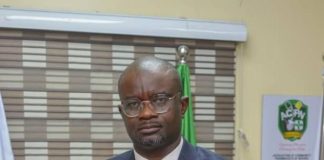The leadership of the National Assembly has lamented the high turn-over rate of serving lawmakers in the ninth Assembly, blaming their inability to retain their legislative seats on the use of indirect mode of primary elections.
The leadership also lamented the mperfections in Nigeria’s democracy even as it identified the indirect primaries especially as it relates to the election of delegates as a major impediment to genuine quest for democracy in the country.
Speaking at a commemorative lecture: Nigeria’s Democratic Experience: “Reflections on Leadership Recruitment and Democratic Institution Building”, organized by the National Legislative and Democratic Institute (NILDS) in Abuja, Speaker of the House of Representatives, Femi Gbajabiamila insisted that there is no substitute to direct primary in a democracy, pointing out that the arrangement that allows few individuals to decide for the people is inimical to Nigeria’s democracy.
The Speaker lamented over the outcome of recently concluded primaries that saw many of his colleagues unable to retain the legislative bid as a result of indirect primaries that left their fates in the hands of a few persons as against mass participation.
In his remarks, former Deputy President of the Senate, Ike Ekweremadu shared a similar option with the Gbajabiamila when he said the National Assembly must find a away to restrict political parties to direct primary for Nigeria’s democracy to flourish.
Earlier in his speech, Director-General, National Institute for Legislative and Democratic Studies (NILDS), Abubakar Sulaiman noted that even though Nigeria’s democracy has made significant progress with 5 multi- party elections in the last 22 years with improved electoral and legislative framework, the country’s democracy has continued to be threatened in many ways.
Threats to Nigeria’s democracy included inducements for delegates, voting buying, and the influence of money bags as well as high cost of nomination fees by political parties.














